Abstract
This study reports on the opinion, beliefs and self-awareness of students taking part in the Erasmus+ EUtourism KA229 project`s activities towards developing 21st century skills, particularly the 4Cs: critical thinking, creativity, communication, collaboration, in the Romanian, Spanish, Croatian, Italian and Turkish educational context. Along with observation of students` work and analyzis of Twinspace and collaborative products, a questionnaire designed for the purpose of this study was administered to 50 participants who were all high school students, involved in the Erasmus+ EUtourism project (between 2019 and 2022). The survey results indicate a greater need to develop 21st century skills in the classroom. The article discusses the role of Erasmus projects and mobilities towards developing 21st century competences for secondary school students involved in the project. It reviews previous framings of literacy, European policies on developing key competences and it suggests how these could be developed through Erasmus projects, presenting examples of activities and collaborative Web 2.0 tools from the EUtourism Erasmus+ project (2019-1-ES01-KA229_064134_2).
Keywords: 21st Century skills, Erasmus+, abilities, eutourism, key competences, project based learning
Introduction
21st century skills are defined by Applied Educational Systems (n.d.) as the “abilities that today`s students need to succeed in their careers during the Information Age.” 21st century skills focus on the development of three major areas: learning, literacy and life skills.
The Article presents current research on European (Erasmus) Skills, 21st century skills for secondary school students and key-competences in the international educational space, the European Commission’s (2022) policies and Romanian National policies in the field of education and gives a brief overview of the activities implemented and the results obtained as part of the strategic cooperation project EUtourism (2019-1-ES01-KA229-064134_2). The project was implemented at “Petru Rareș” National College Beclean between 2019 – 2022 and is a collaboration between six schools, from Spain (IES PÉREZ GALDÓS, Las Palmas de Gran Canaria), Croatia (SREDNJA SKOLA HRVATSKI KRALJ ZVONIMIR, Krk), Italy (ISIS VALDARNO, San Giovanni Valdarno), Romania (COLEGIUL NAȚIONAL „PETRU RAREȘ” Beclean) and Turkey (AKCAKOCA MESLEKI VE TEKNIK ANADOLU LISESI, Kocaeli and SULE MUZAFFER BUYUK MESLEKI VE TEKNIK ANADOLU LISESI, Manavgat/Antalya). The project was awarded with first prize as part of the Bistrița-Năsăud county-level”Made for Europe” national competition in April 2022.
Problem Statement
The Praxeological Dictionary of Pedagogy (Bocoș et al., 2016) describes competences as the result of a dynamic process, being specific to a situation and having the capacity to be adapted to other situations, almost isomorphic with the current situation and belonging to the same family of situations: “Being competent means knowing how to act qualitatively, efficiently and promptly in a category/class of similar or atypical situations”.
Information and Communication Technology in Education (TICE). Dictionary of terms (Baciu et al., 2022a) presents the concept of key-competences as "a transferable and multifunctional package of competences that have to be developed as part of the compulsory education and that are required by all individuals, as a fundament of future learning, as part of lifelong learning".
Key competences, are defined by the European Council, in the Council Recommendations of 22 May 2018 on key competences for lifelong learning as a combination of knowledge, skills and attitudes, where:
knowledge is composed of the facts and figures, concepts, ideas and theories which are already established and support the understanding of a certain area or subject;
skills are defined as the ability and capacity to carry out processes and use the existing knowledge to achieve results;
attitudes describe the disposition and mindsets to act or react to ideas, persons or situations.
The key competences, which are equally important for the development of individuals, are, as presented in Figure 1: “Key competences for lifelong learning”: literacy, multilingual competences, mathematical and STEM competences, citizenship competence, digital, personal, social and learning to learn, as well as entrepreneurship and cultural awareness competence.
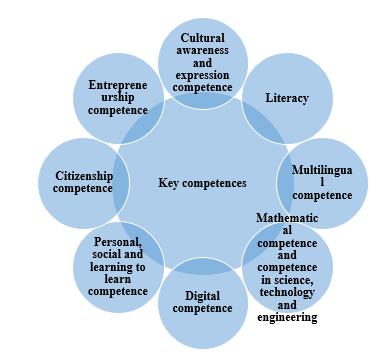
The Praxeological Dictionary of Pedagogy (Bocoș et al., 2016) describes knowledge as “the result of mirroring in the individual consciousness, as a result of a processing and abstraction of objects, phenomena and processes in the surrounding reality and the relationships between them, in the form of representations, perceptions, notions.”. Knowledge can be: declarative/factual, empirical, metacognitive, practical, procedural, strategic/conditional, scientific and theoretical.
The National Education Law nr. 1/2011 (Ministry of National Education, 2022), with its subsequent amendments and additions (in Appendix 1 - List of definitions for terms and expressions used throughout the paper, point 21) defines knowledge as “the result of assimilation, through learning, of a set of facts, principles, theories and practices related to a particular field of work or studies.”
3rd report to ESCO Member States Working Group on a terminology for transversal skills (Bjørnåvold et al., 2021) makes a distinction between “skills” and “competences”: “The terms “skills” and “competences” refer to learned capacities to apply knowledge, know-how, methods or instruments to complete tasks, carry out processes, and/or address changes or problems in a wide variety of contexts. Skills are narrower than competences, in the sense that they refer more to basic, predefined, or routine procedures, while competences are broader than skills, referring to proven abilities in new and complex situations and/or in the face of unforeseen challenges or issues.” The expert group gives a definition of transversal skills: “Transversal skills and competences (TSCs) are learned and proven abilities which are commonly seen as necessary or valuable for effective action in virtually any kind of work, learning or life activity. They are “transversal” because they are not exclusively related to any particular context (job, occupation, academic discipline, civic or community engagement, occupational sector, group of occupational sectors etc.).”
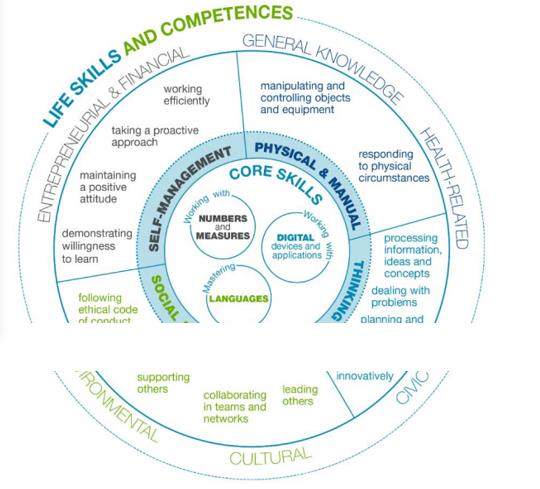
P21's Frameworks for 21st Century Learning were created with the help of teachers, education specialists, and business leaders to define and illustrate the abilities and expertise required for students to succeed in school and in life, as well as the resources needed for 21st century learning results.
21st century skills refer to learning skills, literacy skills and life skills. Learning skills (the 4 C`s: critical thinking, collaboration, creativity and communication) teach students about the mental processes required to adapt and improve upon a modern work environment. Literacy skills refer to information, media and technology (and to students` ability to properly understand and use them), emphasizing how students may distinguish between facts, publishing platforms, and the technology that underlies them. Finding reliable sources and genuine information is a top priority in order to distinguish it from the false information that fills the Internet. Life skills examine the intangible aspects of a student's daily existence and emphasize both professional and personal characteristics. Students should develop the following life skills: flexibility, leadership, initiative, productivity and social skills.
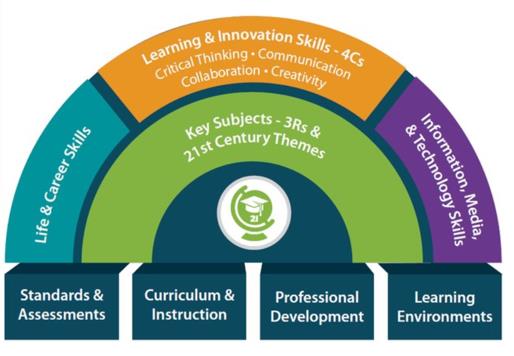
Attitude is referred to, in The Praxeological Dictionary of Pedagogy (Bocoș et al., 2016), as “a preferential and value-based position adopted by a person, directly or indirectly, in relation to an element of the social world (social group, societal problems).”
The Praxeological Dictionary of Pedagogy (Bocoș et al., 2016) describes the ability as: “the individual's acquired capacity to perform an activity that requires skill, understanding, dexterity, precision, finesse, and is formed through practice and developed through the favorable action of several factors, of which intelligence plays a major role.”
Educational management treaty for primary and preschool education (Răduț-Taciu et al., 2015) defines the Erasmus+ program as: “the most important vocational, education and training program in the European Union, in terms of mobility and cooperation.” With support for formal, non-formal, and informal learning in the areas of education, vocational training, and youth, this program seeks to assist the partner nations of the European Union and the nations affiliated with it in their efforts to utilize Europe's human talent and social capital effectively.
Erasmus+ is the European Union programme that aims to modernise and internationalise education, vocational training and youth work. It offers people the opportunity to develop their competences in all three components (knowledge, skills, attitudes) and to exchange experiences with people with similar interests from other countries. For organisations, it provides financial support to develop their management capacity to better respond to the needs of the beneficiaries they serve and the communities they support through international projects.
The Erasmus+ Programme guide (2022) defines the purpose of mobility activities funded by Erasmus+ “to provide learning opportunities to individuals and to support internationalisation and institutional development of schools and other organisations in school education”. Specifically, the objectives of this action are: strengthening the European dimension of teaching and learning; increasing the quality of teaching and learning in school education; Contributing to the creation of the European Education Area.
The Praxeological Dictionary of Pedagogy (Bocoș et al., 2019) defines the project as: a “temporary concern for creating a product or offering a unique service, which involves carrying out a system of activities, planned, organized, articulated in such a way as to achieve certain objectives, within a well-defined period of time, with the use of the allocated resources.”
The Praxeological Dictionary of Pedagogy (Bocoș et al., 2018) refers to the management of educational projects/programs as “a conscious, monitored and controlled process, which aims to put in synergy the following aspects: human resources, methodological resources, material resources, legislative resources, financial resources, technological resources, IT resources, infrastructure resources, time resources, qualitative requirements/aspects, participants' expectations.”
Romanian schools implement Erasmus + cooperation projects, key action 2 (KA2) because these strategic partnership projects have a visible contribution to the development of key competences and 21st century skills among students, through the collaborative, multinational online and face-to-face activities.
Considering the current meanings of the concepts about key competences; the students` profile by the end of compulsory schooling; the 21st century skills and the Erasmus + program for school education - Erasmus+ KA2 projects offer the ideal frame for development of these skills for secondary school students. In our opinion, the integrated and collaborative activities carried out within the strategic partnerships (such as KA2), under the umbrella of the European Commission’s (2022), Erasmus+ program, are activities that contribute to the development of 21st century skills: learning skills, literacy skill and life skills.
Research Questions
In this article, the following questions were explored:
What skills and competences have students from “Petru Rareș” National College and partner schools developed due to the implementation of the Erasmus+ EUtourism cooperation partnership?
Which activities were most enjoyable for students participating in the virtual and face-to-face mobilities?
Research Methods
The research methods used in the Erasmus + strategic partnership project, “EUtourism” (2019-1-ES01-KA229-064134_2), carried out over a period of 35 months, (2019-2022) were the observation, the analysis of the products of the activities carried out by the upper secondary school students from the 6 partner schools and a survey based on the questionnaire applied to secondary school students participating in the project. The project involved (during the three-year implementation) 180 students aged between 14-19 years old from the 6 partner schools, guided by 25 teachers: IES Péres Galdós (Spain), Srednja Skola Hrvatski Kralj Zvonimir (Croatia), Isis Valdarno (Italy), Colegiul Național „Petru Rareș” Beclean (Romania), Akcakoca Mesleki ve Teknik Anadolu Lisesi (Turkey) and Sule Muzaffer Buyuk Mesleki ve Teknink Anadolu Lisesi (Turkey).
At the end of the project, respectively at the end of the 2021-2022 school year, a questionnaire elaborated by the Romanian partner school was filled in by 52 students from the schools involved in the EUtourism Erasmus+ KA229 project, in order to assess the perceived impact of the eTwinning and Erasmus+ activities on their skills and competence development, as reported by themselves. While applying these methods and data collection and interpretation we noticed changes in terms of our students` collaboration, English language skills and teamwork.
Findings
The strategic partnership KA2, “EUtourism” (2019-1-ES01-KA229-064134_2) was implemented at Colegiul Național „Petru Rareș” Beclean, in partnership with five European schools, taking into account the European priorities of the Erasmus+ program on developing competences and increasing the quality of school education. The life cycle of the project began on 01.10.2019 and will end on 31.08.2022.
The project's Twinspace on the eTwinning portal was established as a safe online space for students and teachers at the outset of the project. The staff (teachers, head teachers, librarians etc.) of a school in one of the participating European countries can use the platform provided by eTwinning to communicate, collaborate, develop projects, share, and, in general, feel like they are a part of the most exciting learning community in Europe. Erasmus+, the European program for education, training, youth, and sport, co-funds eTwinning. Among the responsibilities completed by the Romanian team were the management of the eTwinning platform and assistance with its use.
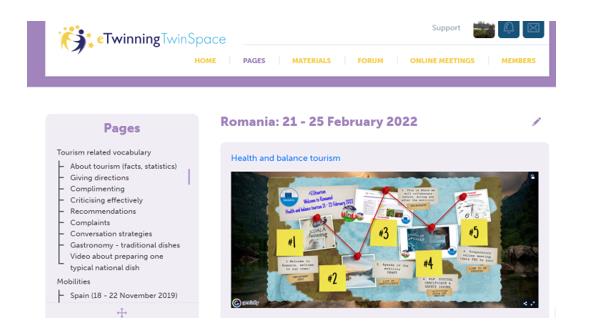
The main activities of the project were focused on Twinspace collaboration; English online lessons and Learning, Teaching, Training Activities (the short-term exchanges of groups of students).
Twinspace collaboration has been constant during the project. Each activity was documented here, and students were able to share and create content together on the topics of our project, working in pairs, in groups, and also, in mixed, transnational teams.
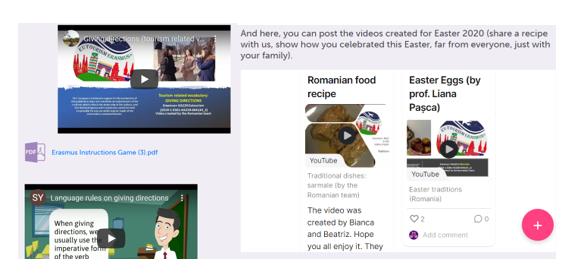
The topics of the project were integrated into the curriculum through English online lessons and EFL from our schools. As a result, students from all six participating schools improved their knowledge of English words linked to the travel industry, including those for appropriate complementing and criticism as well as conversational techniques. One of the local activities in the EFL classes was “Presenting for success.” This activity was organised by the Romanian team, who has provided partners with the materials to carry it out. These resources are included in a dossier which is part of our “Survival English Kit for Tourist Guides and Animators”.
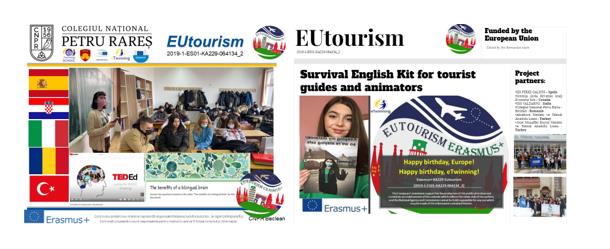
The short-term mobilities of students have helped students improve their command of the English language and of their intercultural competence, develop their oral communication skills, and of course, raise awareness of the incredible source of knowledge tourism is a tool for. In order to achieve this goal, they had to prepare workshops that were put into practice during the mobilities, where they had to teach others some aspects of their culture and help them learn how to carry them out later on for other students at their schools (replicating the workshop they attended to).
Students had to cooperate both locally and during the mobilities, thus getting a different perspective on diversity, and the activities carried out in the project and the products they had to produce have increased their motivation.
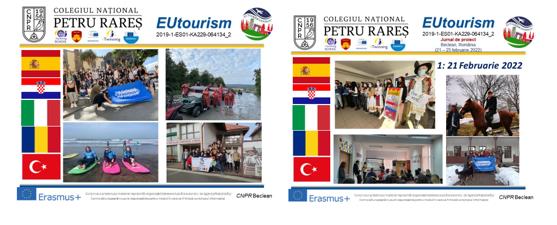
All throughout the research, we conducted interviews and filled out observation notes. We focused on the project's Twinspace, student collaboration and reflections (as part of the learning diaries they completed after each of the mobilities they participated in). Students were encouraged to assess their learning and share their opinion in the Twinspace (as project diaries, individual or collaborative videos, but also, as Forum posts).
The final assessment of the project was completed, in June 2022, by 52 students from the participating schools, who also considered the skills they had learned and the effects their participation in the Erasmus project had on them. The questionnaire consisted of 45 questions and was elaborated by the Romanian team coordinator.
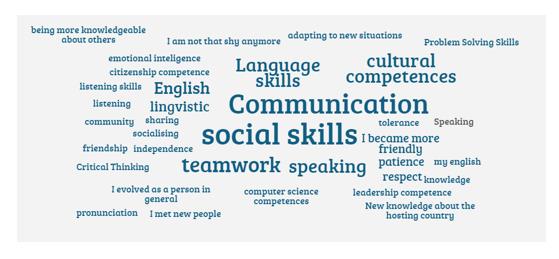
For example, Q.16 was an open question. We transcribed the answers provided by students and noticed that 10 answers indicated social skills; 9 students mentioned communication; teamwork was indicated by 6 respondents; while speaking, English, language skills and cultural competences were highlighted, each, by 5 students. Patience, respect, personal development – and, our favourite, “I evolved as a person in general.” Their feedback is extremely valuable and emphasizes, again, the huge impact of these projects on students` development and on their wellbeing.
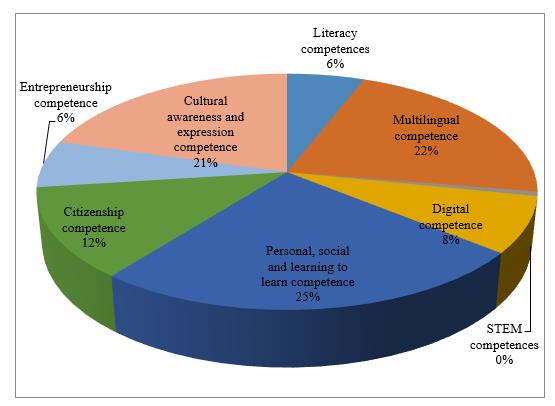
As for key-competences they have developed during the project, 25% of respondents indicated personal, social and learning to learn competences; 22% mentioned multilingual competences; 21% indicated cultural awareness and expression competences; 12% citizenship competences; 8% - digital competence; 6% - entrepreneurship competence; 6% - literacy competence; 0% - Mathematical competence and competence in science, technology and engineering.
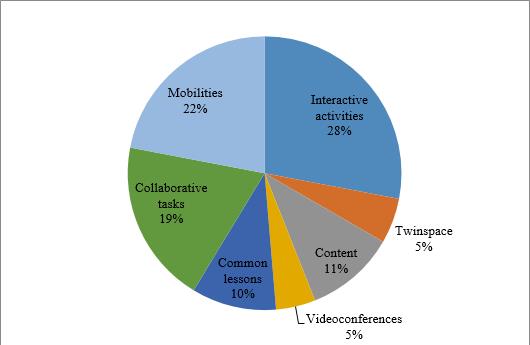
28% of the pupils enjoyed the interactive activities we conducted for our project; 22% indicated mobilities, 19% noted collaborative tasks, and 11 percent liked the content. 10 percent acknowledged the common lessons; Twinspace was mentioned by 5% of respondents and the videoconferences were mentioned by 5% of respondents.
These responses highlight the contribution of these activities to the development of 21st century abilities, which are supported by the competences students describe as having acquired. Because they are less likely to encounter it in traditional classroom settings, our pupils valued teamwork and real-world engagement above all else.
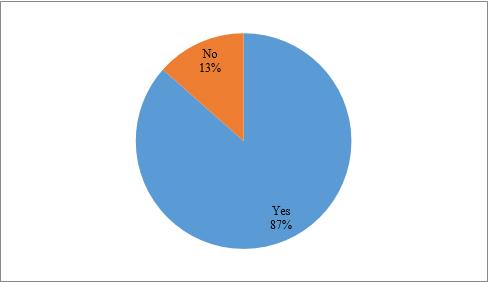
Some of the students who mention the project was a life-changer for them motivate their answer by the fact that, for some of them, this was the first time they traveled outside their countries; others mention the bonds and friendships created with students from other countries; some of them write about the new people they have met and the new habits they adopted; others about their new perspectives; about the global vision they acquired as part of this project: “Erasmus changed my life by making me more sociable, emphatic and connected. I couldn't tell you how much change I went through in the years of Erasmus and how different of a person I am now, a more open-minded one.”
There are also project outcomes that can be used for English classes after the project is finished, such as the “Survival English kit for tourist guides and animators”, the instructions for creating guided tours of significant landmarks and brochures for their schools and countries, the way to organize a tourism fair on the various forms of tourism in each country, the audio guides of significant monuments (which can serve as a model for other students), the videos and tutorials created (on topics like English vocabulary, gastronomy, games, sports, tourism, health and balance tourism, tour-guides and conference tourism etc.) and the steps to follow in order to do a high-quality presentation/video or a successful workshop.
Conclusions
By working internationally on themes relating to tourism and English vocabulary, on face-to-face and online interactive activities and teamwork, students from the six partner schools - IES Péres Galdós (Spain), Srednja Skola Hrvatski Kralj Zvonimir (Croatia), Isis Valdarno (Italy), Colegiul Național “Petru Rareș” Beclean (Romania), Akcakoca Mesleki ve Teknik Anadolu Lisesi (Turkey) and Sule Muzaffer Buyuk Mesleki ve Teknink Anadolu Lisesi (Turkey) - have been able to increase their level of communicative and intercultural abilities, they improved their social skills and became more eager to interact on collaborative multinational tasks. The strategies used were meant to raise awareness and also involve students in project-based learning, research and content creation (as researchers, artists, journalists and communicators). Teachers and students worked remotely in one virtual European classroom (the eTwinning platform), where they were given voice and choice. The short-term exchanges of groups of students gave them the chance to experiment real-life situations, to communicate and work together face-to-face. Students became aware of their cultural heritage and the culture of the partner schools; made friends and, while learning English and tourism-related vocabulary, through eTwinning and as part of the mobilities, they developed 21st century competences (critical thinking, creativity, communication, and cooperation). More than that, they developed life skills, that will help them in their future careers: time management skills, learning to learn and the ability to work in teams.
Congratulations to all the students and teachers involved in the activities of the EUtourism project (2019-1-ES01-KA229-064134_2). Special thanks to our coordinators: Sara Martin Diez – who brought us all together, inspired and guided us till her last days (and whose memory we will cherish forever), and Sheila Cerván Vidales, who kept us all together and made it possible for all of us to share and learn in a European multicultural context, despite the challenging pandemic crisis.
References
Applied Educational Systems. (n.d.). What Are 21st Century Skills? https://www.aeseducation.com/blog/what-are-21st-century-skills
Baciu, C. (coord), Bocoş, M.-D., & Magdaş, I.-C. (2022a). Information and Communication Technology in Education (TICE). Dictionary of terms (Vol. I, A-K). CEEOL Press.
Battelle for Kids. (2019). P21’s Frameworks for 21st Century Learning. http://www.battelleforkids.org/networks/p21/frameworks-resources
Bjørnåvold, J., Hart, J., Noack, M., & Plaimauer, C. (2021). 3rd report to ESCO Member States Working Group on a terminology for transversal skills. https://esco.ec.europa.eu/uk/publication/towards-structured-and-consistent-terminology-transversal-skills-and-competences
Bocoș, M.-D. (coord), Răduț-Taciu, R., & Stan, C. (2018). The Praxeological Dictionary of Pedagogy (Vol. IV, M-O). Cartea Românească Educațional Publishing House.
Bocoș, M.-D. (coord), Răduț-Taciu, R., & Stan, C. (2019). The Praxeological Dictionary of Pedagogy (Vol. V, P-Z). Presa Universitară Clujeană Publishing House.
Bocoș, M.-D. (coord), Răduț-Taciu, R., Stan, C., Chiș, O., & Andronache, D.-C. (2016). The Praxeological Dictionary of Pedagogy (Vol. I, A-D). Paralela 45 Publishing House.
European Commission. (2022). The Erasmus+ Programme guide. https://erasmus-plus.ec.europa.eu/sites/default/files/2022-01/2022-erasmusplus-programme-guide-v2_en_0.pdf
Ministry of National Education. (2022). National Education Law. https://edu.ro/sites/default/files/_fi%C8%99iere/Legislatie/2022/LEN_2011_actualizata_2022.pdf
Răduț-Taciu, R., Bocoș, M.-D., & Chiș, O. (2015). Educational management treaty for primary and preschool education. Editura Paralela 45.
The Council of The European Union. (2018). Council recommendation of 22 May 2018 on key competences for lifelong learning. Retrieved on 20 June, 2022 from https://eur-lex.europa.eu/legal-content/EN/TXT/PDF/?uri=CELEX:32018H0604(01)&rid=7
Twinspace eTwinning. (2019-2022). Twinspace of EUtourism Erasmus+ project (2019-1-ES01-KA229-064134_2). https://twinspace.etwinning.net/93755/home
Copyright information

This work is licensed under a Creative Commons Attribution-NonCommercial-NoDerivatives 4.0 International License.
About this article
Publication Date
31 May 2023
Article Doi
eBook ISBN
978-1-80296-962-7
Publisher
European Publisher
Volume
6
Print ISBN (optional)
-
Edition Number
1st Edition
Pages
1-710
Subjects
Education, reflection, development
Cite this article as:
Cîmpean, M., Găzdac, V., & Bocoș, M. (2023). Developing 21st Century Skills For Secondary School Students Within The Eutourism Project. In I. Albulescu, & C. Stan (Eds.), Education, Reflection, Development - ERD 2022, vol 6. European Proceedings of Educational Sciences (pp. 633-645). European Publisher. https://doi.org/10.15405/epes.23056.59

